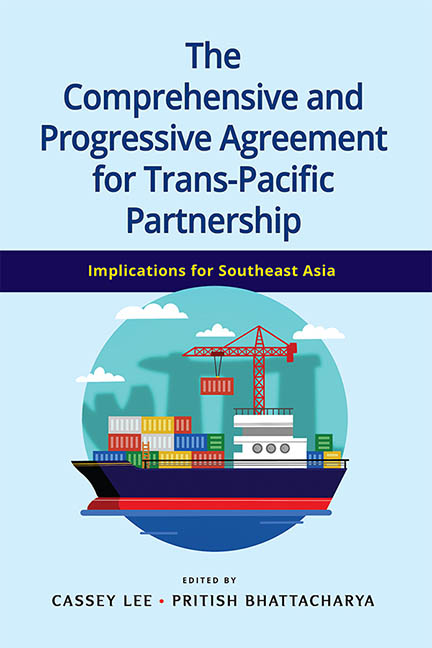Book contents
- Frontmatter
- Contents
- Preface
- Abbreviations
- About the Contributors
- 1 Introduction
- 2 The Economics of the CPTPP and RCEP: Asia Pacific Trade Agreements without the United States
- 3 The TPP and CPTPP: Truths about Power Politics
- 4 The Investment Chapter and ISDS in the CPTPP: Lessons from and for Southeast Asia
- 5 Intellectual Property in the CTPP and Access to Medicines A Thai Perspective
- 6 New Rules for State-Owned Enterprises in the CPTPP
- 7 Impact of the CPTPP on Japanese Manufacturing Affiliates in ASEAN
- 8 Reassessing Malaysia’s Export Opportunities in the TPP and CPTPP
- 9 Impact of the CPTPP on Vietnam
- 10 Should Thailand Join the CPTPP?
- 11 Indonesia, the TPP and CPTPP: Hold Your Breath
- Index
3 - The TPP and CPTPP: Truths about Power Politics
Published online by Cambridge University Press: 08 October 2021
- Frontmatter
- Contents
- Preface
- Abbreviations
- About the Contributors
- 1 Introduction
- 2 The Economics of the CPTPP and RCEP: Asia Pacific Trade Agreements without the United States
- 3 The TPP and CPTPP: Truths about Power Politics
- 4 The Investment Chapter and ISDS in the CPTPP: Lessons from and for Southeast Asia
- 5 Intellectual Property in the CTPP and Access to Medicines A Thai Perspective
- 6 New Rules for State-Owned Enterprises in the CPTPP
- 7 Impact of the CPTPP on Japanese Manufacturing Affiliates in ASEAN
- 8 Reassessing Malaysia’s Export Opportunities in the TPP and CPTPP
- 9 Impact of the CPTPP on Vietnam
- 10 Should Thailand Join the CPTPP?
- 11 Indonesia, the TPP and CPTPP: Hold Your Breath
- Index
Summary
Introduction
Preferential trade agreements are negotiated by states. By definition, they are political in nature. As they involve more than one state, by definition, they are shaped by geopolitical interests as well as economic and commercial ones. The larger the preferential trade agreement, the more geopolitical concerns are likely to matter in the intent of the deal and its ramifications. Likewise, the more powerful the states involved in the negotiations and eventual deal, the more geopolitical concerns are likely to matter in intent and ramifications.
The disastrous outcomes of World War I and World War II centred in Europe when power political considerations trumped all else were the necessary conditions for the establishment of the post-war Bretton Woods System and the General Agreement on Tariffs and Trade (GATT) at the global level (Office of the Historian n.d.) and the European Union (EU) at the regional level (Silva 2009). Both were created to foster economic exchange as a liberal means to moderate and direct power political impulses away from war. The Cold War bipolar interstate structure determined who was in and out of these new global and European economic bodies.
The Trans-Pacific Partnership (TPP) and its replacement following the US withdrawal, the Comprehensive and Progressive Agreement for Trans-Pacific Partnership (CPTPP), reflect this overarching truth.
This chapter will go deeper and analyse how the four stages of the TPP's evolution each highlight different, but not all mutually supporting, elements about this geopolitical truth and its determining effects on preferential trade agreement negotiations and how these negotiations and agreements are interpreted. The first phase is prior to the United States’ decision to join the TPP negotiations. The second phase, the main focus of the chapter, is from when the United States joined the TPP negotiations to the signing of the agreement in early 2016. The third phase is the US withdrawal from the TPP under President Trump. And the fourth stage is the development of the CPTPP after the United States withdrew.
Small State Strategy
It is a fact that, in international diplomacy, size matters. The bigger and more powerful a country is, the greater its clout.
- Type
- Chapter
- Information
- Publisher: ISEAS–Yusof Ishak InstitutePrint publication year: 2021



